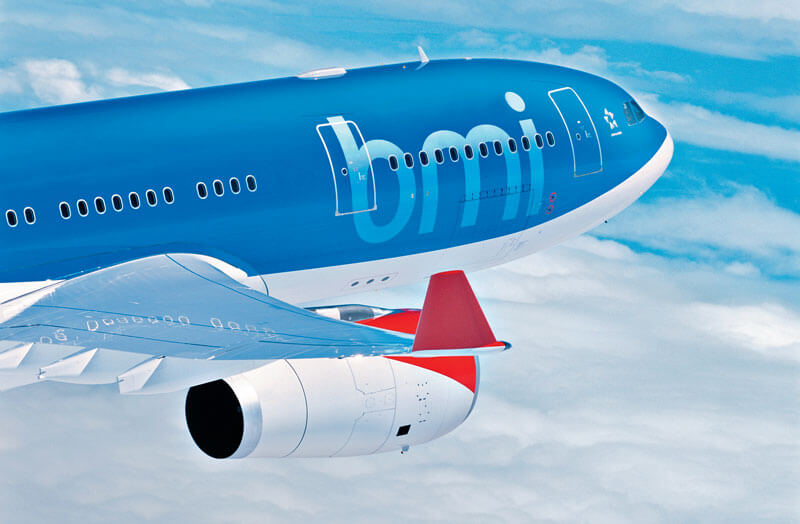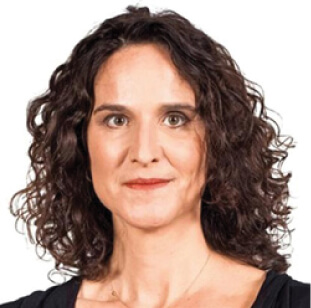Rebranding made easy
Buy yourself a coffee on your next easyJet flight and you will almost certainly double the profit the carrier makes out of you for that trip. The low-cost airline business model really is that tight: easyJet’s average profit-per-seat last year was 83p, with a shrinking proportion coming from the core activity of getting people from A to B.
This is why you are forced to opt out of buying travel insurance, if you don’t want it, when booking your flight. Both easyJet and Ryanair require customers to ‘uncheck’ not once but twice, knowing that inertia or confusion will often result in the extra profit that an insurance sale generates. Hotel offers and hire-car deals also pop up at strategic points in the booking procedure.
Because these ancillary sources of income are increasingly important to the business, the legal dispute over the easyJet name and its permitted sources of revenue is intensifying. Sir Stelios Haji-Ioannou, through his easyGroup vehicle, owns the name and licenses it back to the airline for £1 a year.
Under that licence, though, the airline agrees that no more than 25% of its income can come from ‘non-core activity’. This is because Sir Stelios doesn’t want easyJet encroaching on his other ‘easy’ ventures, which range from airport buses to aftershave.
At first glance, that puts the airline in a terrible bind. To keep its famous brand name it has to close itself off from profitable avenues of business. On the other hand, wouldn’t it be a nightmare to abandon the easyJet name and change it to something else?
No, it wouldn’t. One of the oddest quirks about consumers’ relationships with brands is that they routinely accept changes of name without a flicker of demurral. Even with cherished, long-established brands, it seems, a name-change is no big deal, just as long as the brand meaning is carefully transferred and the communications announcing the transition are not rushed.
The practice is usually embarked on for higher-order business reasons, such as international alignment, and is now so common it almost goes unnoticed. Abbey has become Santander. Norwich Union is Aviva. No one tucks into a Marathon any more, but that doesn’t stop them enjoying exactly the same thing in a Snickers wrapper. Bertolli is every bit as big a success for Unilever as it was when called Olivio. With brands, it’s the meaning that really counts; the names they go by might as well be flags of convenience.
A change of name would give easyJet some practical hurdles, but they are by no means insurmountable. The thorniest issue could be retaining that distinctive orange colour scheme, which might involve renewed legal wrangling. Research shows that colour is a more powerful factor than name in conjuring up the rich texture of brand meaning.
EasyJet has much to gain and little to lose from moving on. As the grown-up offer in the budget airline sector, it might actually benefit from escaping associations with other ‘easy’ businesses that Sir Stelios keeps starting, several of which have failed. Certainly, franchised curiosities such as easyPizza and easyWatch do the airline’s image no favours.
Meanwhile, it’s not as if the team up in their big orange bunker at Luton airport are without experience in brand migration. Eight years ago, the cleverly-named airline Go, with its distinctive logo and its strong customer base, was absorbed seamlessly by its new owner. Without breaking stride, it changed its name – to easyJet.
Success stories

bmi successful rebrand could offer useful precedent to easyJet
bmi offers a successful precedent for easyJet. It changed from British Midland in 2003, taking care to retain its distinctive blue colour. At the same time it launched its low-cost subsidiary bmibaby.
Like most name changes, international alignment was the reason Oil of Ulay became Olay. Great products and consistent positioning ensured it remains a jewel in Procter & Gamble’s global crown.
In 2001 Anderson Consulting became Accenture. It is now the world’s biggest consulting company, with annual revenues in excess of $20bn.
Disasters
PricewaterhouseCoopers’ 2002 rebrand to ‘Monday’ lasted a few days; then IBM bought the consulting business and ditched the name. Someone at Wolff Olins will still say it was a great idea.
In the same year, Dragon Brands devised the name Consignia for the Post Office Group. Allan Leighton changed it to Royal Mail Group when he took over as chairman 16 months later.
